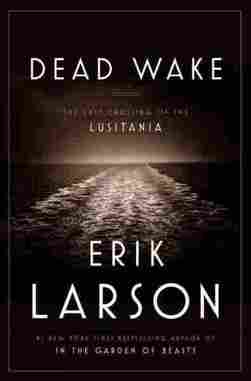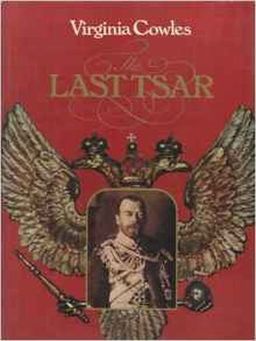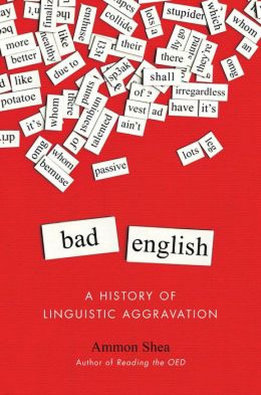|
Rating: 4/5 Stars
Dive into the radiant world of California Golden by Melanie Benjamin, where the sun-soaked landscapes of 1960s Southern California set the stage for a mesmerizing exploration of family dynamics, desperation, and second chances. At the heart of the narrative is Carol Donnelly, a legendary female surfer challenging the norms of a male-dominated sport, and her daughters Mindy and Ginger. Fueled by their mother’s apparent indifference, these young sisters adopt Carol’s unwavering devotion to the ocean, normalizing PB&J sandwiches for dinner and skipping school to catch waves. While Mindy becomes a surfing sensation, basking in minor celebrity and winning competitions, Ginger finds herself entangled with the self-proclaimed ‘Surf God’ in a world of drug deals and beachside shack living. Drawing inspiration from a real-life mother-daughter surfing trio, Benjamin weaves a tale that, though fictional, swells with authenticity. The characters’ actions are often frustrating, but they undeniably contribute to the novel’s overall impact. Despite not always being likable, the characters come alive and shine the brightest when they’re hanging ten. What truly dazzles in this book is the key throughline: the generational echoes within a family when a woman is torn away from her true calling and thrust into a role she never desired. Through the compelling narratives of Mindy and Ginger, Benjamin explores how parental neglect leaves an indelible mark on a child’s beliefs and behaviors. Carol resists the conventional trappings of motherhood, often seeking solace by the seaside. In Carol’s absence, Mindy evolves into Ginger’s caretaker, fostering a fierce sense of self-preservation. Ginger, on the flip side, desperately seeks someone to look after her. These reverberations from their shared history resonate in their subsequent romantic relationships, adding layers of complexity to the emotional rollercoaster of the narrative.
0 Comments
 Written by Lauryn Smith I did not think it would be possible, but “Dead Wake” has replaced “The Devil in the White City” as my favorite Erik Larson book. (Can I take a second to brag that my copy of the former is signed by the author?!) If you have not read any of this guy’s books, you need to. Like now. In “Dead Wake,” Larson explores the events during the weeks leading up to the sinking of the luxury ocean liner the Lusitania on May 7, 1915. Many people have heard of this World War I disaster, but few know the minute details, the ill-fated set of conditions that culminated in the deaths of hundreds of passengers. In his characteristic compelling biographical style, Larson educates readers on this maritime catastrophe. First, let’s talk basics. The Lusitania was a Cunard transatlantic liner that navigated between New York City and Liverpool. In response to competition, it was designed in 1907 to be one of the biggest, fastest, most luxurious and most modern ships around. It was the first of Cunard’s “grand trio” of four-funneled ships. This “Greyhound” was cruising from NYC to Liverpool in seas recently declared by Germany to be a war zone when it was attacked by a German U-boat, or submarine. On its final excursion, the Lusitania was captained by William Thomas Turner and contained passengers both regal and humble, as well as numerous children. Remarkably, as Larson demonstrates, the passengers were relatively calm sailing into submarine-infested waters during the tenth month of the war, likely an effect of the widespread expectation that civilian ships were to be kept safe from attack. But as luck would have it (and by luck I mean an array of circumstances that melded juuust so), Unterseeboot-20, the German submarine captained by Walther Schweiger, torpedoed the Lusitania, effectively ending its nautical reign, as well as forcing America’s participation in the war. That summary of the Lusitania is truly just the beginning. It is tempting to detail all the interesting components Larson compiles in his newest nonfiction tale, but not only would that spoil the story, it would take ages. Larson unearths the myriad facets, both large and small, that led to this calamity, and he describes how the interrelation between them resulted in such an outcome. Weather, politics, ship design, cryptanalysis and more—all are important pieces of the story, and Larson presents them eloquently and effortlessly. He paints a vivid picture. Readers will walk away feeling quite familiar with the Lusitania, its history and its peripheral contexts.  Written by Lauryn Smith I love Russia. Its architecture is beautiful, its culture fascinating, its people vogueish, its history unique. I recently returned from a trip to Moscow, and wow. The country is just incredible. To supplement my research prior to travel, I borrowed my dad’s first edition copy of “The Last Tsar,” also known as “The Last Tsar & Tsarina,” by Virginia Cowles. (His copy happens to be stuffed with a handful of newspaper clippings, all of which relate in one way or another to the notorious Romanovs. Borrowing old books is so much fun). As the book’s title implies, “The Last Tsar” is the nonfiction account of Tsar Nicholas II, the final Russian Emperor. Until 1917, tsars were the supreme rulers of Russia. (The term “tsar” derives from the Latin word for “Caesar,” or emperor.) Nicholas began his reign in 1894, and he was forced to abdicate in 1917. The following year, he and his immediate family were unceremoniously killed en masse by the Bolsheviks. Cowles outlines the events that led to the end of imperial rule and the unfortunate fate of Nicholas, and she does so in a way that is both thorough and comprehensible. Cowles elucidates Nicholas’s character, as well as that of his wife, the German-born Alexandra Feodorovna. The couple, we learn, unfalteringly believed that their rule was a God-given right. Alexandra had great influence on Nicholas and his policies, and the infamous Grigori Rasputin had great influence on Alexandra. Nicholas possessed a warm, timid personality, especially toward Alexandra and their five children. However, he was christened “Bloody Nicholas” by the Russian people, who derided his dependence on Alexandra’s input, his inept leadership and his role in thrusting Russia into a state of war and violence.  Written by Lauryn Smith Hopefully my review of Ammon Shea’s “Bad English” leaves no stone unturned, literally bemusing you because it ain’t boring irregardless of your interest in linguistics. Did anyone cringe at my depraved use of the English language in that opening sentence? Good. I intended that, and Shea was my inspiration. In his nonfiction book “Bad English,” Shea delineates the language's history, illustrating the worries, objections and complaints of grammarians throughout the ages. In doing so, he intentionally commits linguistic crimes and provides examples of historic and contemporary linguistic "mistakes," ultimately concluding that English is a hot mess but in the best way possible. Shea subtly yet successfully argues against those who take a prescriptive approach to English. He demonstrates that it is not necessary to fight over language. Instead, he shows that language is alive, that it is an interesting subject for study, debate and conversation. According to Shea, there is no right or wrong way to use English as every rule has evidence of being broken. Within the text, Shea presents both sides of the story, citing supporters and detractors of various of English’s canons. To clarify his points, he picks individual words and grammatical tendencies and follows their histories, explaining arguments and counterarguments surrounding their usage. He covers some expected terms, such as “hopefully,” “literally” and “irregardless,” but also less common ones, such as “very,” “donate” and “belittle.” |

Enjoying my book reviews? If you’ve found them helpful or simply love diving into a good book, consider supporting my caffeine-fueled reading sessions! Your contribution helps keep the reviews coming and ensures I stay wide awake for those late-night reading marathons. Cheers to a shared love for literature! ☕️
Categories
All
|

